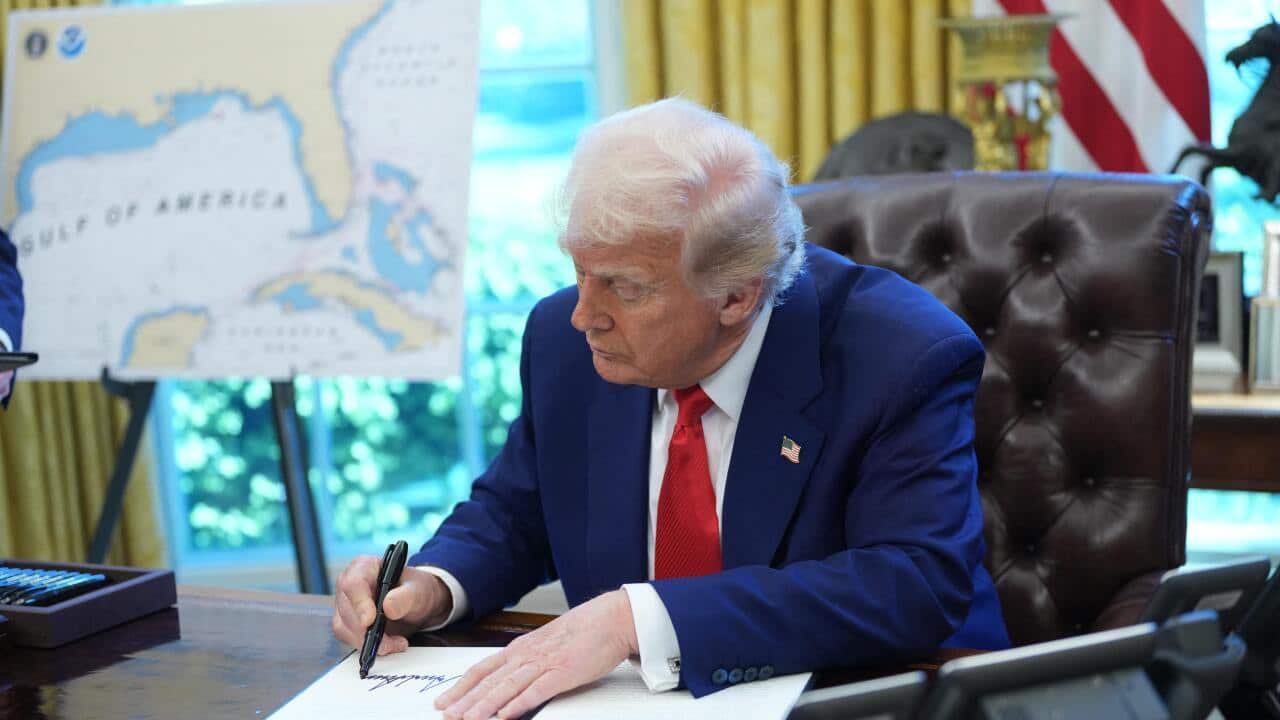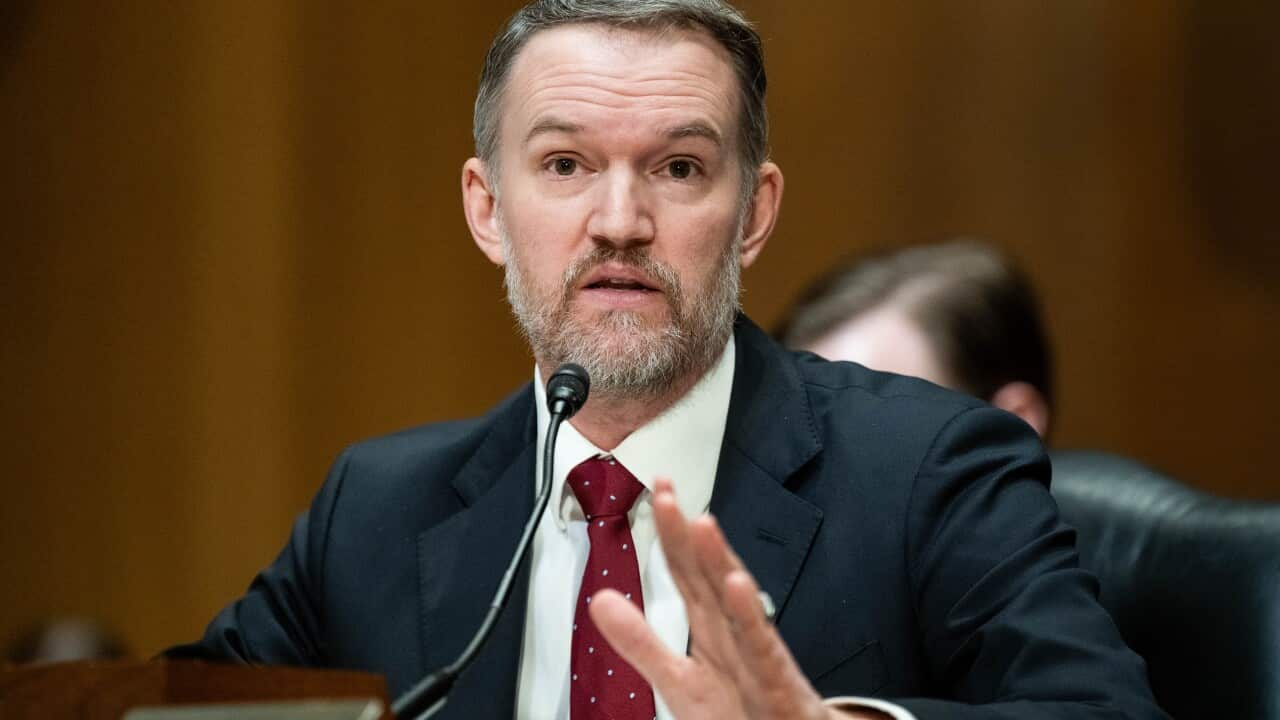Key Points
- Michele Bullock has made her first public remarks since the US announced sweeping tariffs on many countries last week.
- The Reserve Bank of Australia governor said there would be an "inevitable period of uncertainty and adjustment" ahead.
- Bullock said the RBA was "carefully considering several factors" ahead of a decision on interest rates in May.
The Reserve Bank governor has sought to allay concerns following a week of economic tumult brought about by United States President Donald Trump's trade war.
Addressing a women's economic inclusion event on Thursday evening, Michele Bullock conceded she hadn't initially intended on speaking about the central bank's policy imperatives.
"Inevitably, there will be a period of uncertainty and adjustment as countries respond to the ongoing tariff announcements by the United States administration," she told the Chief Executive Women annual dinner in Melbourne.
"It will take some time to see how all of this plays out and the added unpredictability means we need to be patient as we work through how all of this could affect demand and supply globally."
Financial markets have experienced volatility since Trump's , with bonds and equities plunging or soaring at each development.
The US president's latest announcement of a above 10 per cent, with the exception of China, reassured markets across the globe and .
The VIX index, which measures market volatility, has spiked up to 60 — the highest level since the early stages of the COVID-19 pandemic.
Australia in good place to weather volatility, Bullock says
Volatility was to be expected as the process unfolded, Bullock said, but Australia was in a good position to weather the storm.
"First, we're not currently seeing the same degree of impact as previous market events like in 2008, for example," she said, referencing the global financial crisis.
"And second, the Australian financial system is strong and well placed to absorb shocks from abroad."
Bullock said that, being mindful of not adding to uncertainty, it was too early for the RBA "to determine what the path will be for interest rates", but that it was closely monitoring financial market conditions at home and abroad.
"We are carefully considering several factors, including the response of our trading partners, additional counter-responses from the US, the response of our exchange rate and adjustments in other financial markets," she said.
"A key focus for us is how all this uncertainty is affecting decisions made by households and businesses in Australia."
On Wednesday, traders had been pricing in five rate cuts by the end of the year, including the possibility of an emergency 50-basis-point reduction at the RBA's next meeting in May.
Each 25 basis point cut would shave about $90 off monthly repayments on a typical, $600,000 mortgage.
But Trump's pivot prompted markets to walk back their bets, with just 25 basis points priced in for May and a total of 116 basis points by year's end.
Deutsche Bank chief economist Phil O'Donaghoe, who 48 hours earlier had predicted a 50 basis point cut for May, reverted his call to his previous prediction of 25 basis points for May.
"That said, our general conviction around the path for lower RBA rates has increased," he said.
The remaining tariffs of 125 per cent on China and 10 per cent on the rest of the world will still weigh on the RBA's assessment for global growth, while diversion of goods from the US to Australia would reduce inflation domestically.
NAB went the other way, , having revised upwards the near-term unemployment rate while shaving growth expectations for 2025.
The bank's chief economist Sally Auld and head of Australian economics Gareth Spence said the RBA needed to play catch-up, with the 4.1 per cent cash rate still in restrictive territory.




